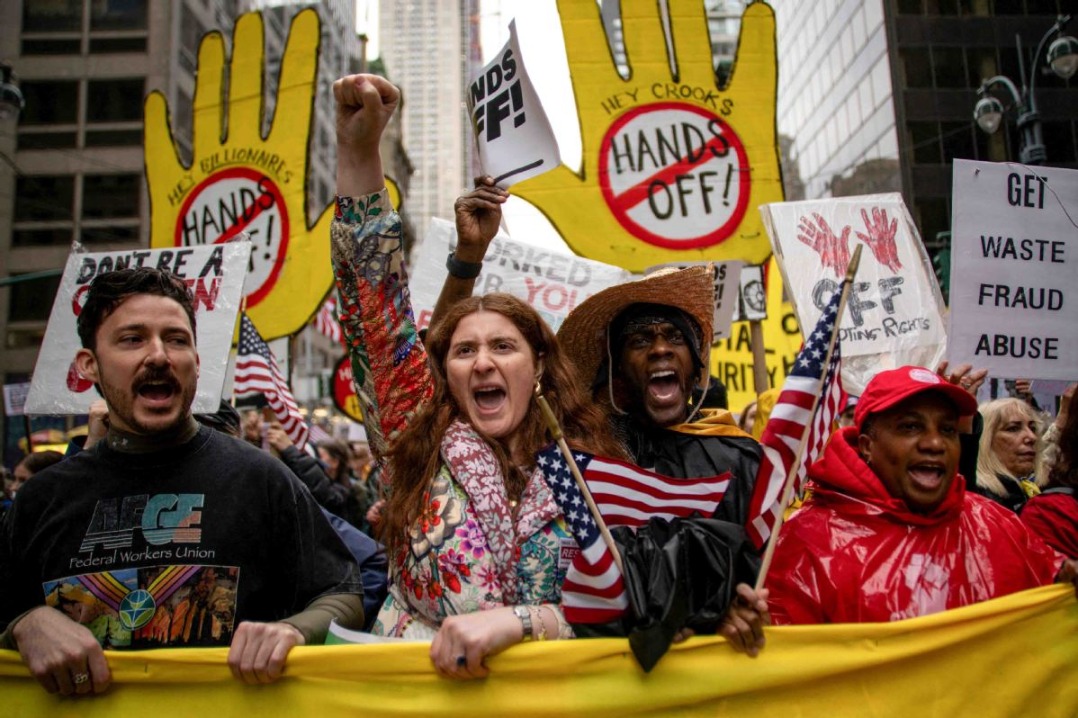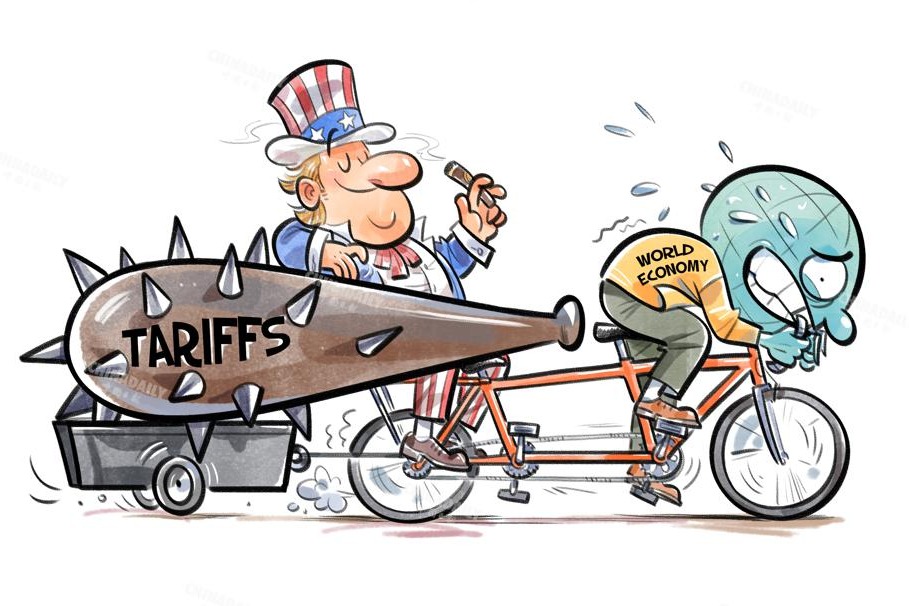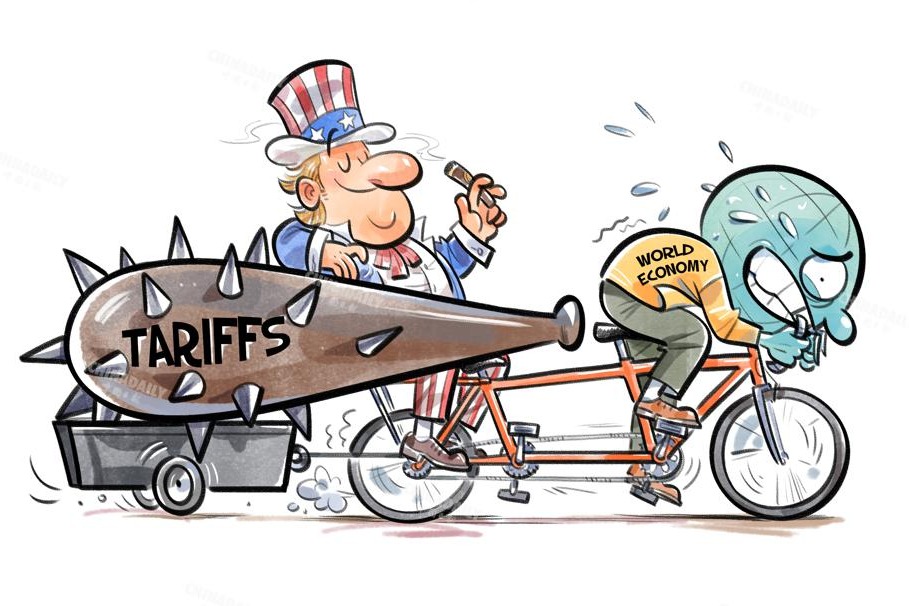US leaving behind a mess in Afghanistan


Editor's Note: The Joe Biden administration's decision to withdraw all US troops from Afghanistan by Aug 31, 2021, is an irresponsible act, because the security situation in Afghanistan remains complicated and terrorists have gained added strength, which may intensify the internecine conflict. Three experts share their views on the issue with China Daily:
The situation in Afghanistan is fast deteriorating, accelerated by the withdrawal of virtually all US and allied forces that have been there for two decades. The US-led forces invaded Afghanistan apparently to drive out the Taliban and al-Qaida while the embers of the Sept 11, 2001, terrorist attacks were still smoldering.
While one can understand US President Joe Biden's desire to end this "forever war", the hasty and accelerated withdrawal, seemingly uncoordinated with its "ally", the Afghan government, raises a question about whether there's a sinister motive behind Biden's sloppiness.
Former two-time US secretary of defense Donald Rumsfeld, remembered as an architect of the Iraq war, comes to mind, who (in) famously said there are "known knowns", things we know we know; "known unknowns", things we know we do not know; and "unknown unknowns"-things "we don't know we don't know".
Let's review the "known knowns".
The Afghan war is the US' longest. It has cost about $2 trillion and 2,448 American lives. In February 2020, then US president Donald Trump decided to end the war through negotiations with the Taliban which excluded the Afghan government, by May 1, 2021.
On April 14 this year, Biden announced the withdrawal of virtually all US(and allied) forces no later than Sept 11, 2021. But on July 8, he advanced the withdrawal date to Aug 31, saying the basic purpose of the war had been met a decade ago with Osama bin-Laden's killing.
Biden withdrew most of the US forces from the Bagram air base on July 1, without even informing the Afghan military, or making any foolproof plan for an orderly withdrawal. For example, he didn't have any plans for prior evacuation of individual Afghan allies and their families, who are likely to face death or severe punishment at the hands of the Taliban.
Biden, as a US senator, initially supported the war but later had a change of heart. With his decades of foreign policy experience, Biden, as US vice-president, vigorously advocated troop withdrawal saying the US mission had been accomplished only to be overruled by former US president Barack Obama, who said there was another purpose that remained unfulfilled: ensuring that the Taliban or other extremist groups didn't use Afghanistan as a safe haven to launch attacks against the West in the future.
During his presidential campaign in April 2019, Biden said: "I would bring American combat troops in Afghanistan home during my first term. Any residual US military presence in Afghanistan would be focused only on counterterrorism operations… But we must end the war responsibly, in a manner that ensures we both guard against threats to our homeland and never have to go back."
As Biden's campaign gained strength and he became the Democratic nominee, he established his transition team, staffed with experts, including some of the senior advisers now in positions of power. Their job was to work out policy positions and identify potential nominees that mirrored Biden's thinking to fill the top positions and hit the ground running on Jan 20 if Biden were elected.
Secretary of State Antony Blinken, who has worked with Biden since 2003, is a prime example. So is Kurt Campbell, who was Obama's top US diplomat for Asia and the author of Hillary Clinton's "pivot" to Asia, whose fingerprints can be seen on every action Biden takes in the region. Obviously, they not only knew Biden but also were fully aware of his position on Afghanistan, China and the rest of the region since they helped formulate it.
So an obvious "known unknown" is: Why Biden and his advisers, despite being aware of the chaos and instability Trump's May 1 withdrawal would cause in the region, did not address the pressing issue until 12 weeks after his inauguration and is executing the withdrawal like a bunch of amateurs?
Also, Blinken said in his first major speech as secretary of state that, "our relationship with China will be competitive when it should be, collaborative when it can be, and adversarial when it must be". So another "known unknown" is: Why the US failed to collaborate with China? Could it be because, as Campbell said on May 26, "the period that was broadly described as engagement (with China) has come to an end" or is an "unknown unknown" at work here?
Similarly, why doesn't the US, which accuses China of not following the "rules-based international order", practice what it preaches?
In May, State Councilor and Foreign Minister Wang Yi, as rotating chair of the UN Security Council, the highest representative body of the rules-based international order, vigorously tried to stop the conflict between Israel and Hamas, and fashioned a problem-solving resolution supported by 14 of the 15 Security Council members. Why did the US repeatedly block Wang's attempts?
And why doesn't the US engage with the UN Security Council, or with the most relevant regional multilateral organization, the Shanghai Cooperation Organization, founded in 2001 by China and Russia to combat terrorism, extremism and separatism, whose members also include Afghanistan's neighbors that have the most to lose from regional instability?
This instability can be used to advantage by rogue actors such as the "East Turkestan Islamic Movement", the Islamic State terrorist group, al-Qaida, the Taliban, and Balochistani terrorists. Some are responsible for the terrorist attacks in China's Xinjiang Uygur autonomous region and along the China-Pakistan Economic Corridor, a strategic part of the Belt and Road Initiative.
And to prevent causing further damage, why didn't the US engage with its strongest regional partner and SCO member India? Could it be because regional instability serves the US' purpose, especially to get China and the SCO mired in the mess of Washington's making, as the United Kingdom, the US itself and the Soviet Union were, in the "graveyard of empires" that Afghanistan has long been?
As it is an "unknown unknown", we may never find the answer.
The author is a senior fellow at the Center for China and Globalization.
The views don't necessarily reflect those of China Daily.
If you have a specific expertise, or would like to share your thought about our stories, then send us your writings at opinion@chinadaily.com.cn, and comment@chinadaily.com.cn.
































